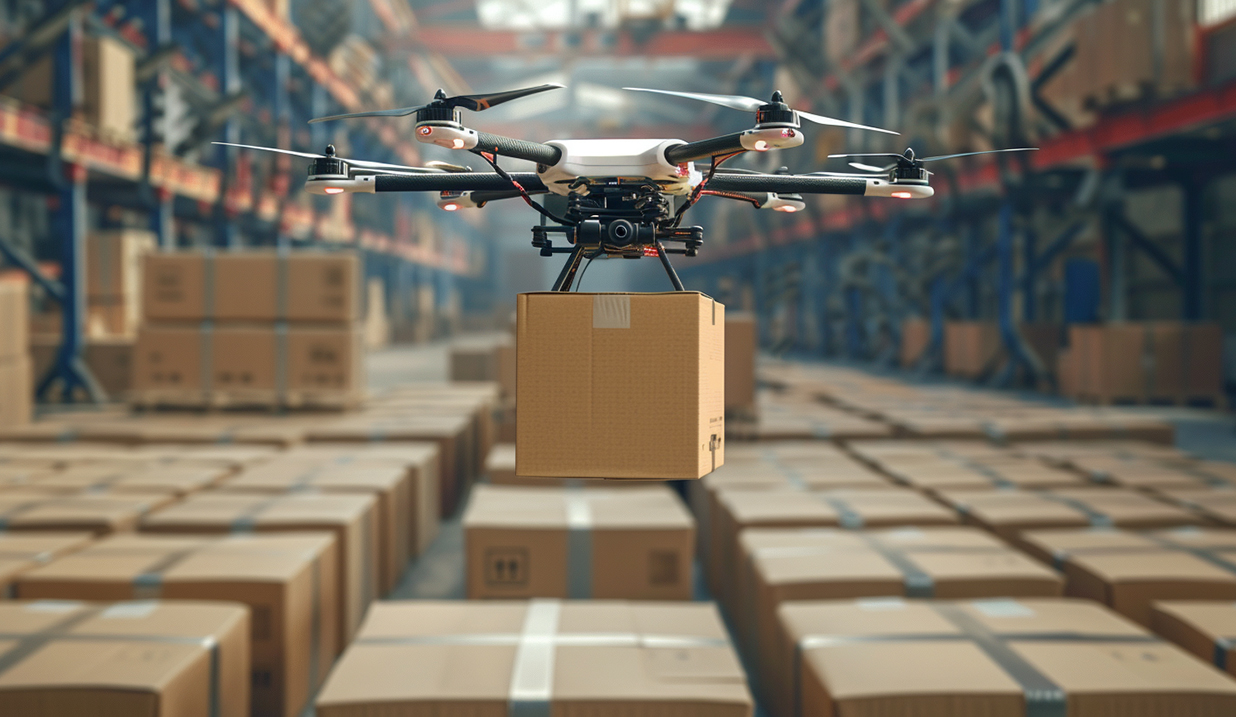
WIRELESS CHARGING IN THE NEWS
Autonomous delivery vehicles have recently become a significant innovation in the logistics field. These vehicles, driven by core autonomous driving technology, can transport goods without human driver intervention. Their application is extensive, covering almost all areas in need of logistics services, from e-commerce deliveries to food deliveries. They not only increase logistics efficiency but also significantly reduce labor costs and showed their potential to minimize human contact, contributing positively to public health safety during the pandemic.
The technological core of autonomous delivery vehicles primarily includes LiDAR, cameras, and radar sensors, which work together to provide real-time sensing of the surrounding environment and make driving decisions through complex algorithms. The operation of these vehicles heavily relies on their electrical systems, making advancements in charging technology crucial to their implementation and widespread adoption. Currently, there are three main charging methods for autonomous delivery vehicles: traditional wired charging, wireless charging, and the more cutting-edge swappable battery model.
Traditional wired charging is the most common method at present. Similar to charging electric vehicles, this method requires connecting a charging station to the vehicle’s charging port. The advantages of this approach are its maturity and relatively low cost, making it suitable for most current autonomous delivery vehicles. However, the downside is the fixed time and location needed for charging, which can hinder continuous operation during peak periods. Furthermore, the manual operation required incurs additional labor costs that are not effectively reduced during the charging process.
Wireless charging is becoming a more attractive option. This technology uses electromagnetic induction to charge the vehicle without physical contact, significantly enhancing operational convenience. Autonomous delivery vehicles can automatically charge while parked or taking short stops, requiring minimal human intervention, thus supporting 24/7 continuous operation. However, current limitations in efficiency and transmission range, along with the substantial investment needed for infrastructure development, remain challenges for wireless charging technology.
To overcome the drawbacks of traditional charging, some companies are exploring the swappable battery model. This approach utilizes standardized battery modules that can be quickly replaced when depleted, eliminating the wait time for charging. Such a design greatly enhances the operational efficiency of autonomous delivery vehicles, especially in busy urban logistics systems, where this model shows unique advantages. Nevertheless, this swapping model faces challenges with battery standardization and the need to establish swap station networks.
Across the evolution of charging technology, various innovations are being continuously explored and validated. Developing more efficient and environmentally friendly electric energy solutions has become a focal point in the industry, impacting not only the operational efficiency of autonomous delivery vehicles but also the future trends of the entire transportation sector. With continuous technological advancements, battery energy density is expected to increase, charging speeds are anticipated to improve further, and the proportion of eco-friendly electricity use will gradually rise.
As a prominent manifestation of the modernization and automation of logistics, autonomous delivery vehicles’ charging methods reflect a shift in energy utilization practices. Looking forward, as charging technology continues to innovate, autonomous delivery vehicles will increasingly become more efficient, environmentally friendly, and convenient logistical solutions, supporting the sustainable development of modern society. In light of urbanization and the trend of online consumption, autonomous delivery vehicles will undoubtedly play an ever more critical role in future urban infrastructure, driving urban logistics services towards more intelligence and greater resource efficiency.







